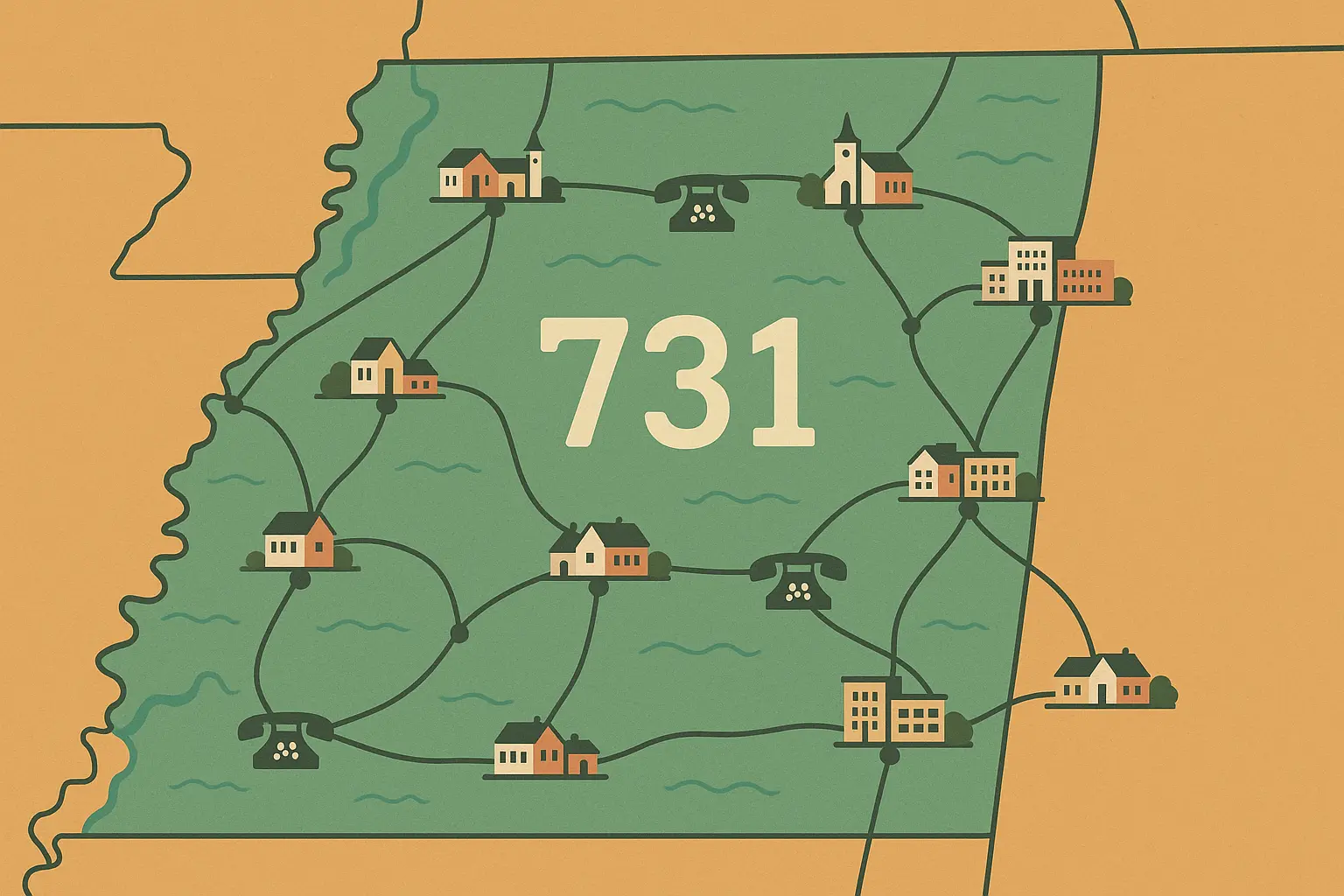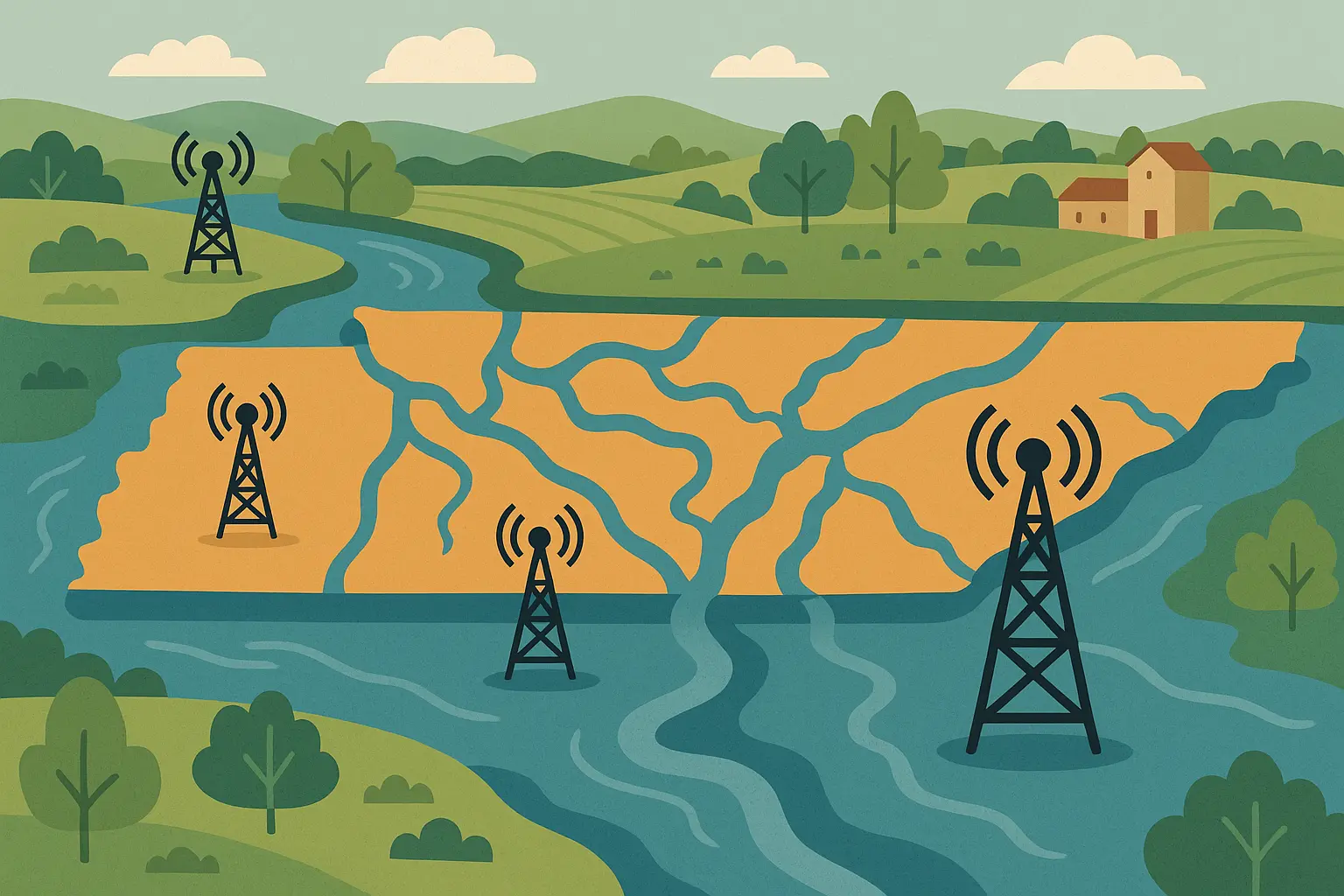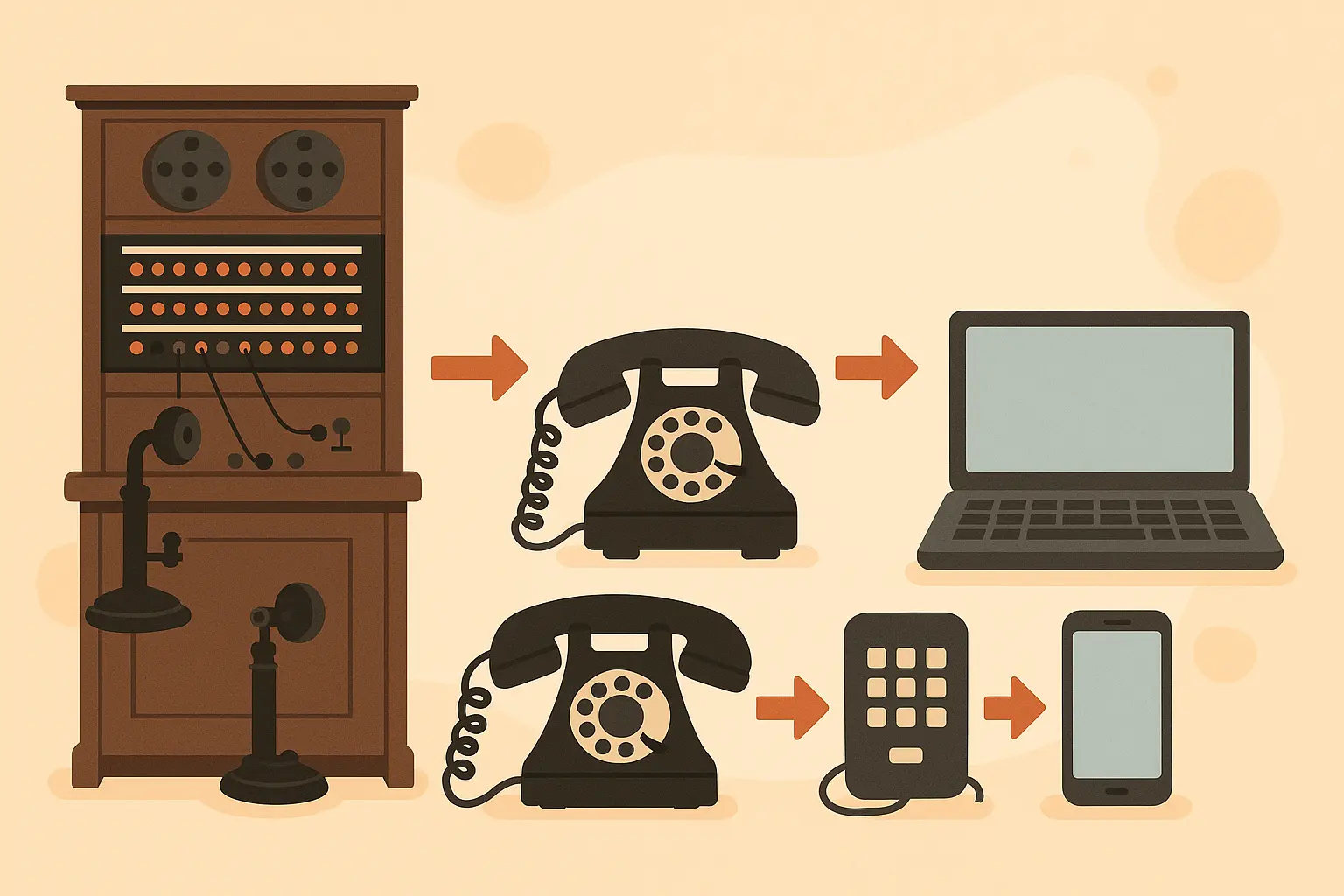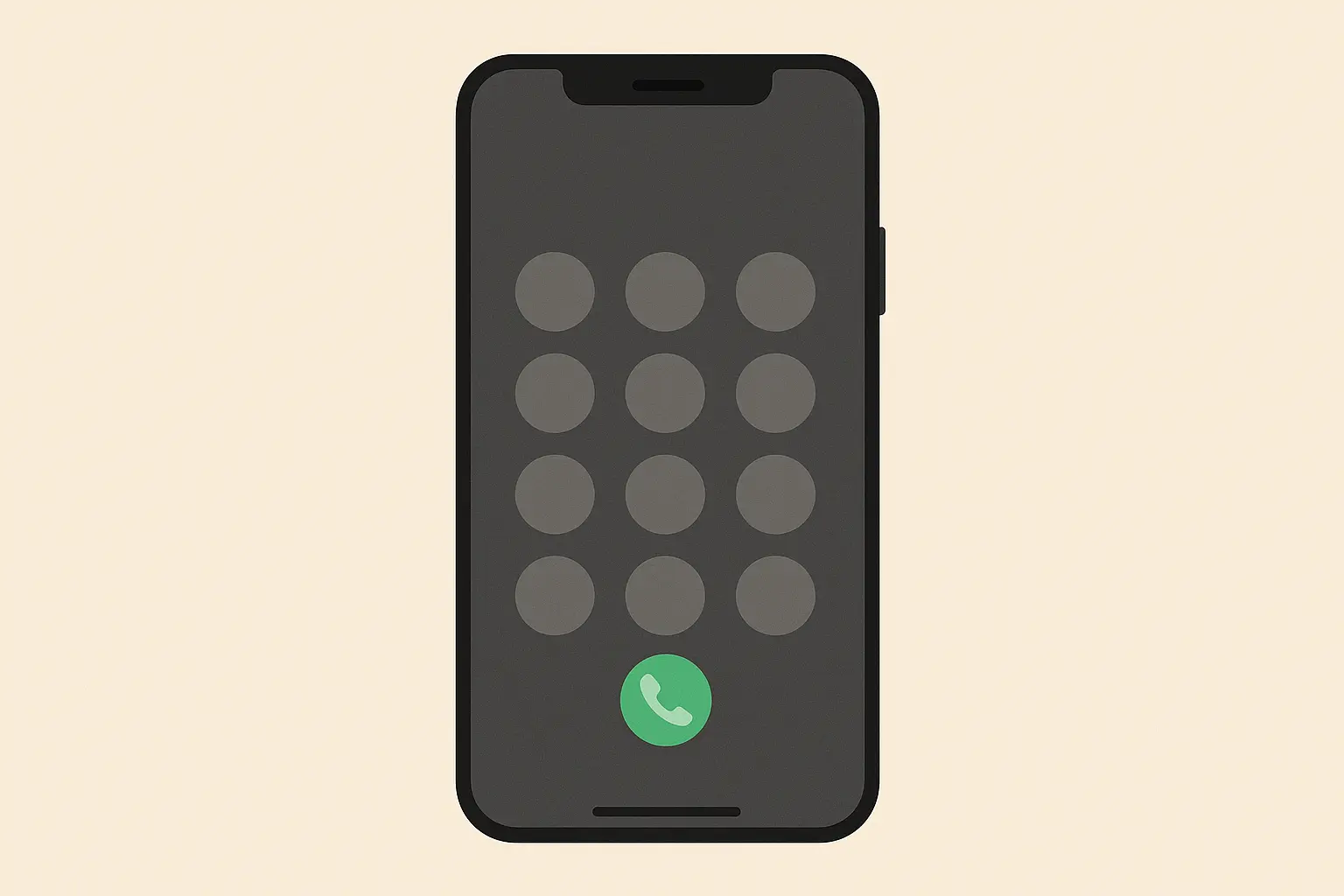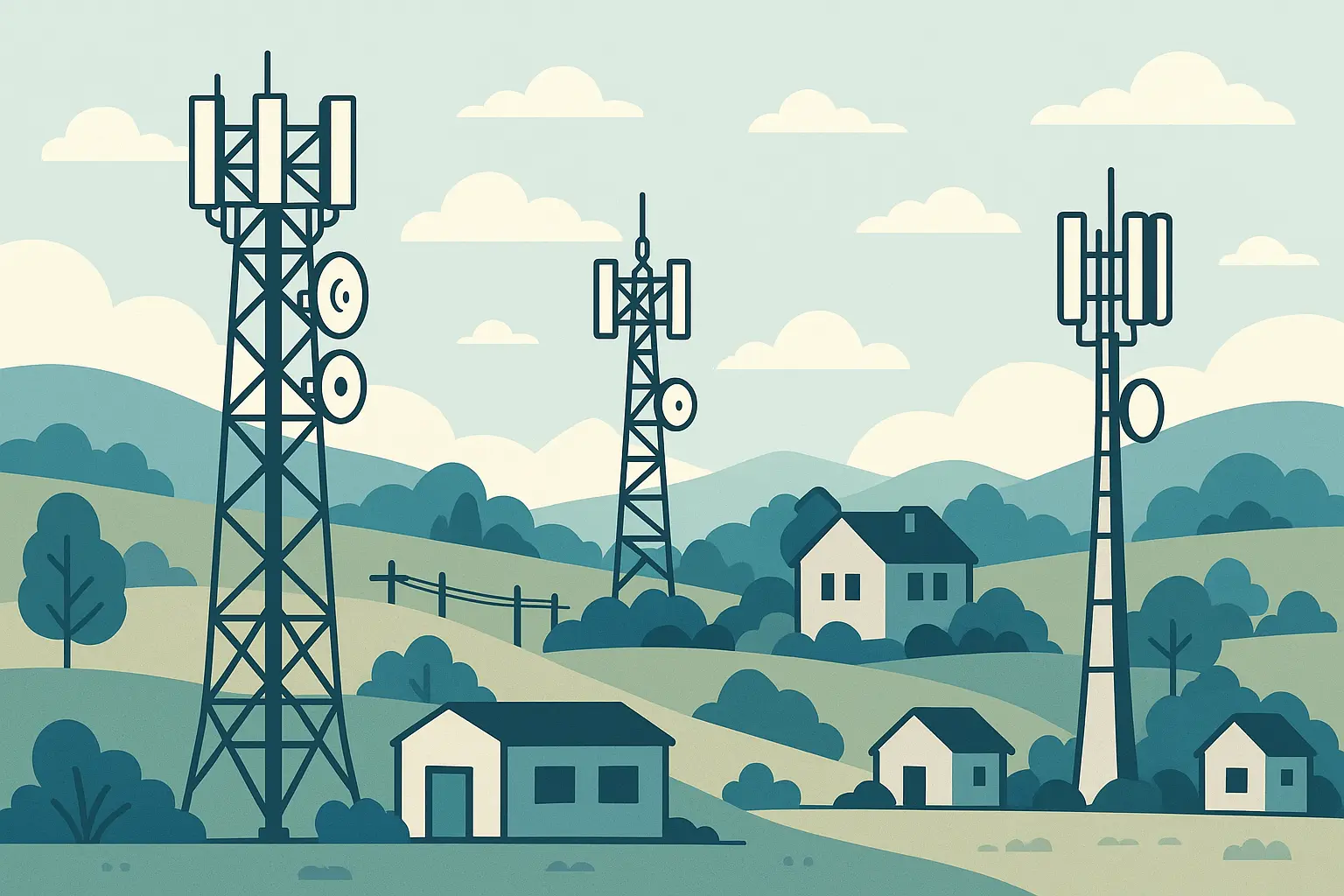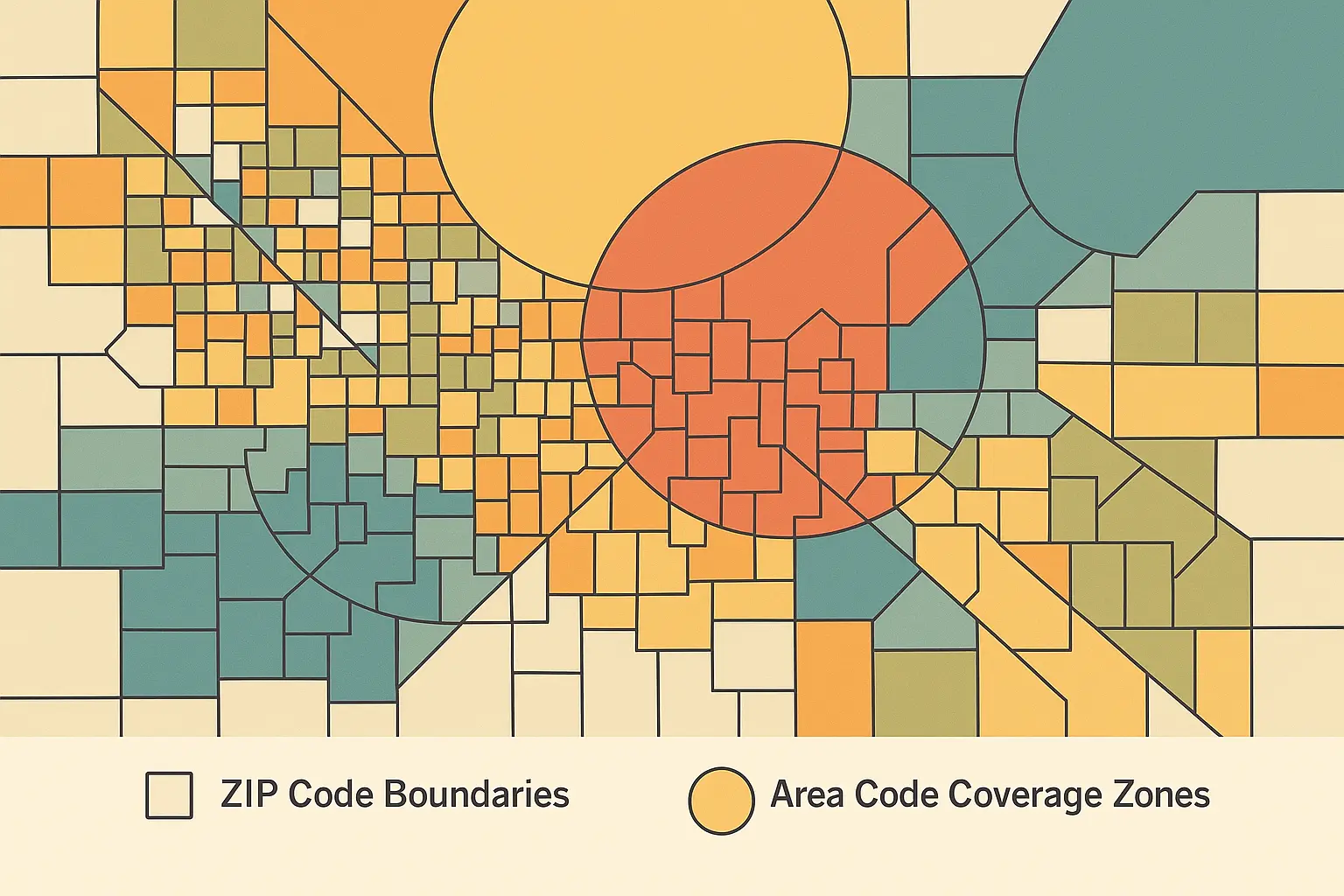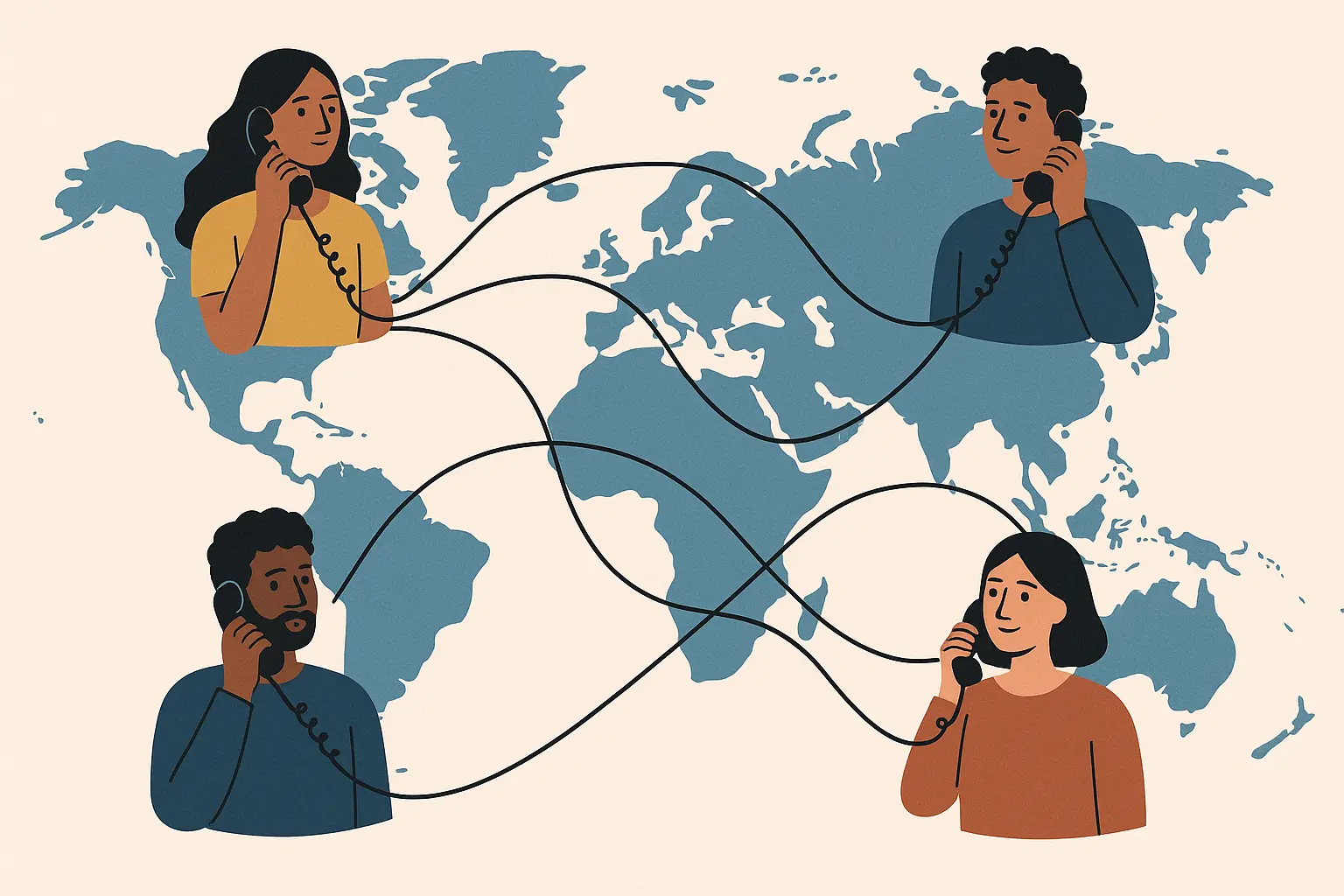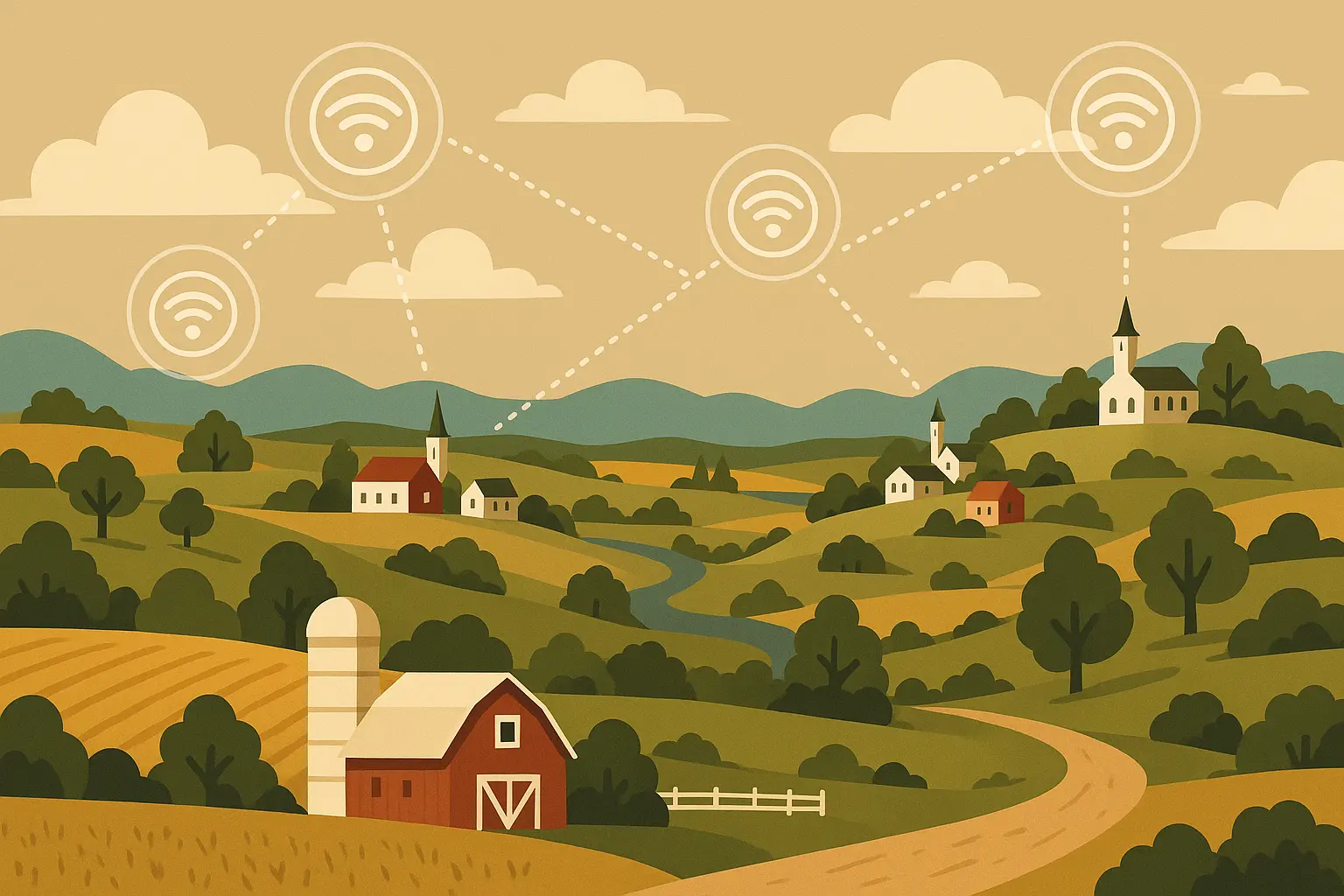Table of Contents
Table of Contents
-
What Makes the 731 Area Code Special in Tennessee
-
Where Your 731 Number Actually Reaches
-
The Real Story Behind 731’s Creation
-
How to Properly Use Your 731 Number
-
Technical Stuff That Actually Matters
-
ZIP Codes and Geographic Mysteries
-
International Calling Facts You Need
-
Why SMS Management Matters for 731 Users
TL;DR
-
The 731 area code covers western Tennessee, serving about 400,000 people across Jackson, Martin, Paris, and rural communities
-
You need 10-digit dialing even for local calls within the region
-
The area spans from the Mississippi River to the Tennessee River valley
-
Multiple ZIP codes overlap with 731 coverage, creating complex service territories
-
International callers must use +1-731-XXX-XXXX format
-
Modern SMS forwarding solutions help manage communications across the region’s spread-out geography
What Makes the 731 Area Code Special in Tennessee
Most folks don’t give much thought to area codes, but 731 tells an interesting story. This slice of western Tennessee connects everything from college towns to farming communities along the Mississippi River, creating one of the most geographically diverse telecommunications regions in the state.
The 731 territory serves as the digital lifeline for western Tennessee, covering about 400,000 residents spread across a fascinating mix of urban hubs and rural communities. What makes this region unique is how it blends agricultural heritage with modern manufacturing and education in ways you won’t find anywhere else in Tennessee.
Western Tennessee has always marched to its own beat, and the 731 area code perfectly captures this independent spirit. Jackson stands as the undisputed regional hub, but the real character comes from how dozens of smaller communities connect and support each other across this geographically diverse territory.
The Heart of Western Tennessee
The economic landscape here tells a fascinating story. You’ve got everything from major manufacturing plants to family farms that have operated for generations, plus educational institutions that draw students from across the region. This diversity creates communication needs that standard telecommunications planning doesn’t always anticipate.
Jackson functions as more than just the largest city in the region – it’s the nerve center for everything that happens in western Tennessee. The significance of Jackson as our regional hub became crystal clear when WBBJ celebrated 70 years of serving West Tennessee from Jackson. This demonstrates how the city has been the communications center for the entire region since the 1950s, long before 731 even existed.
Healthcare, education, and commerce all flow through Jackson to reach communities throughout western Tennessee. When someone in a small town needs specialized medical care or when a rural business needs banking services, Jackson is where they turn.
Beyond Jackson, the region encompasses some truly fascinating communities that each contribute their own flavor. Martin serves as a vibrant college town with UT Martin bringing thousands of students who need reliable communications. Paris (yes, we have our own Paris) operates as an agricultural center where farmers and suppliers coordinate throughout planting and harvest seasons.
Union City and Dyersburg each bring their own character – Union City with its proximity to Reelfoot Lake and Dyersburg with its manufacturing base. These communities might seem small to outsiders, but they’re the backbone of what makes western Tennessee work.
Where Your 731 Number Actually Reaches
Understanding where your 731 number actually extends becomes crucial when you’re coordinating business or personal communications across this region. The geographic coverage tells a story of strategic telecommunications planning that follows natural geographic features and economic patterns that make sense for how people actually live and work in western Tennessee.
When you’re dealing with the diverse territory that the 731 area covers, you might want to consider how to forward text messages to an email address for better coverage across the region’s challenging geography.
Your 731 number connects you to a regional community that spans from river bottoms to rolling hills, from college campuses to industrial centers. The coverage area reflects decades of thoughtful planning that considered how western Tennessee actually functions as an economic and social unit.
Boundary Lines That Actually Make Sense
The boundaries follow logical geographic and economic patterns that you can actually see on the ground. The Mississippi River forms the natural western boundary, while the Tennessee River valley creates the eastern edge. This creates a cohesive service territory that matches how people actually travel and do business in the region.
|
Geographic Feature |
Role in 731 Boundaries |
Communities Served |
|---|---|---|
|
Mississippi River |
Western boundary |
Ripley, Dyersburg |
|
Tennessee River |
Eastern boundary |
Paris, Camden |
|
Forked Deer River |
Internal corridor |
Jackson, Humboldt |
|
Reelfoot Lake |
Northern landmark |
Union City, Martin |
The coverage shows territory that stretches from the Mississippi River on the west to approximately the Tennessee River valley on the east, covering portions of multiple counties in western Tennessee. This river-to-river coverage creates a natural service territory that aligns with historical settlement patterns and modern economic relationships.
Rivers have always determined how communities developed and how people moved goods and services. The telecommunications planners who designed the 731 boundaries understood this geographic reality.
Population Patterns That Shaped the Network
Approximately 400,000 residents call the 731 region home, but they’re definitely not evenly distributed across the territory. The population spreads between concentrated urban areas and dispersed rural communities that dot the agricultural landscape. This distribution pattern influenced how telecommunications infrastructure developed and continues to shape service delivery today.
The region showcases the classic American pattern of urban clustering surrounded by rural dispersion. Jackson and other larger towns concentrate population and economic activity, while vast rural areas maintain lower population densities but cover significant geographic territory.
This creates unique challenges for telecommunications service delivery. Rural areas need reliable coverage across long distances, while urban areas require capacity to handle concentrated usage. The infrastructure has to serve both needs effectively.
The Real Story Behind 731’s Creation
Most people don’t realize that western Tennessee used to share area codes with other regions that didn’t make much sense geographically. Back in 2001, everything changed when 901 got trimmed down to just the Memphis metro area, and the rest of west Tennessee became 731.
This wasn’t just about running out of phone numbers – it was about giving our region its own identity. Western Tennessee operates differently than Nashville or Memphis, and we finally got telecommunications infrastructure that recognized that.
What Changed in 2001
Before 731 existed, phone numbers were scattered across different area codes that didn’t follow any logical pattern. The transition became official in September 2001 when the 901 area code was trimmed down to Fayette, Shelby, and Tipton counties. The rest of West Tennessee became the 731 according to WBBJ’s historical coverage.
The timing actually worked out well. As cell phones became more common and businesses needed more phone lines, having our own area code meant we wouldn’t run into number shortages down the road.
The change wasn’t just administrative – it reflected the reality that western Tennessee operates as a distinct economic and social region. The creation of 731 solved immediate capacity issues while setting up the region for future growth.
Modern Evolution and Future Planning
The 731 area code continues evolving as technology advances and communication patterns change. Recent developments have enhanced service capabilities and reliability, including improved cellular coverage and broadband integration.
Modern technological advances have transformed what 731 service means for residents and businesses. Enhanced cellular coverage, broadband integration, and digital service compatibility have elevated the area code from basic telephone service to comprehensive communications infrastructure.
These upgrades support contemporary business and personal needs while maintaining the reliability that western Tennessee communities depend on for everything from agricultural coordination to educational communications.
How to Properly Use Your 731 Number
Here’s where people mess up: you can’t just dial seven digits anymore, even for local calls. Every call in the 731 region requires 10-digit dialing – that means 731 plus the seven-digit number, every single time.
This catches a lot of longtime residents off guard, especially older folks who’ve been dialing seven digits their whole lives. But it’s mandatory now, so you might as well get used to it.
For businesses managing multiple communications across western Tennessee’s diverse geography, learning how to get started with AutoForward SMS can streamline your message management significantly.
Dialing Rules That Matter
The transition to mandatory 10-digit dialing affects all calls in the region, as reported by Action News 5, which noted that “82 area codes in 32 states will move from 7-digit dialing to 10-digits” including the 731 area code.
For local calls: 731 + seven digits (no “1” needed)
For long distance: 1 + 731 + seven digits
For international callers: +1-731-XXX-XXXX
The 10-digit requirement affects everything – your saved contacts, business phone systems, even fax machines. If you haven’t updated these yet, you’re probably missing calls.
10-Digit Dialing Checklist:
-
Update all saved contacts to include 731 area code
-
Reprogram fax machines for 10-digit dialing
-
Update business phone systems and auto-dialers
-
Inform elderly family members about the change
-
Test emergency contact numbers with full 10 digits
-
Update any printed materials with phone numbers
Common Mistakes to Avoid
Don’t assume your old seven-digit dialing will work – it won’t. Update all your saved contacts to include the 731. And if you run a business, make sure your phone system is programmed correctly, or customers won’t be able to reach you.
Different central office codes within 731 serve specific geographic areas or service providers, helping organize telecommunications infrastructure efficiently. These codes aren’t random – they’re strategically assigned to match service territories and technical requirements.
|
Central Office Code |
Primary Service Area |
Typical Usage |
|---|---|---|
|
731-422 |
Jackson metro |
Business/residential |
|
731-587 |
Martin/UT Martin |
University/residential |
|
731-642 |
Paris area |
Mixed residential/commercial |
|
731-885 |
Union City |
Rural/agricultural |
Technical Stuff That Actually Matters
The technical infrastructure behind 731 service involves more complexity than most people realize. Multiple service providers, network integration systems, and digital compatibility requirements work together to deliver reliable communications across western Tennessee’s diverse geography.
When dealing with technical challenges across the region, understanding how to prevent your app from going to sleep ensures consistent message forwarding even in areas with intermittent connectivity.
Service Providers and Network Reality
Multiple telecommunications companies serve the 731 region, offering everything from traditional landlines to cutting-edge wireless and Voice over IP services. The competitive landscape includes both regional specialists who understand local needs and national carriers with extensive infrastructure.
Regional providers often understand the unique challenges of serving rural western Tennessee, while national carriers bring advanced technology and extensive network resources. Each carrier brings different strengths and coverage patterns that affect service quality in different parts of the territory.
Digital Integration and Modern Features
Modern 731 numbers integrate seamlessly with digital communication systems, supporting advanced features that go far beyond basic voice calling. Call forwarding, voicemail, business telephony solutions, and messaging capabilities work across the network, enabling sophisticated communication workflows for both personal and business use.
731 numbers work perfectly with contemporary communication platforms including VoIP systems, mobile applications, and cloud-based business phone services. This compatibility ensures that businesses and residents in western Tennessee can access the same advanced communication tools available in major metropolitan areas.
Text messaging capabilities are fully supported across all major wireless carriers and many VoIP providers. This includes basic SMS, multimedia messaging, group texting, and integration with business messaging platforms that modern organizations depend on.
For Android users in the region, learning how to forward text messages on an Android phone provides comprehensive control over SMS management across the area’s diverse geographic territory.
ZIP Codes and Geographic Mysteries
Here’s something that confuses people: area codes and ZIP codes don’t line up perfectly. You might have a 731 phone number but live in a different ZIP code than someone else with the same area code.
The relationship between ZIP codes and telecommunications creates fascinating overlaps and coordination challenges that most people never consider. Understanding how these two systems interact provides essential context for mail delivery, service areas, and geographic coordination within western Tennessee.
How ZIP Codes and Area Codes Overlap
The 731 area code encompasses multiple ZIP codes across western Tennessee, creating overlapping service territories that require careful coordination between telecommunications and postal services. Jackson uses ZIP codes 38301-38305, Martin is 38237, Paris is 38242, and so on. Each city keeps its own postal codes even though we all share 731 for phone service.
This matters for businesses trying to serve the whole region, because shipping zones and phone service areas don’t always match up.
A business in Jackson might have a 731-422-5555 phone number with a 38301 ZIP code for downtown operations, while their warehouse facility uses the same area code but operates under ZIP code 38305, demonstrating how telecommunications and postal systems overlap but serve different organizational purposes.
Rural ZIP codes in the 731 region often cover much larger geographic areas than their urban counterparts, reflecting the lower population density and the need to serve farming communities spread across vast territories.
Modern Mapping and Location Services
Interactive maps and digital location services now integrate 731 data with ZIP codes, GPS coordinates, and municipal boundaries to provide comprehensive location information. Online directories and mapping services use this combined data to deliver accurate business listings and service area identification that helps both residents and visitors navigate the region.
The digital integration has become particularly valuable for emergency services, delivery companies, and service providers who need to coordinate across the region’s complex geographic and administrative boundaries.
International Calling Facts You Need
If you’re calling a 731 number from another country, you need the full international format: +1-731-XXX-XXXX. The “+1” tells the international system you’re calling the United States, and then 731 routes it to western Tennessee.
This comes up more than you’d think, especially for businesses that work with overseas clients or families with relatives abroad.
While 731 is purely a domestic US area code, understanding its place within international dialing systems prevents confusion and ensures proper global communication protocols. When dealing with international communications involving 731 numbers, understanding how to enter a phone number in international format ensures proper global connectivity for western Tennessee businesses and residents.
Global Dialing Standards
International callers must use the complete +1-731-XXX-XXXX format when dialing 731 numbers from outside North America. This format ensures proper routing through international telecommunications networks and prevents confusion with similar number patterns used by other countries.
The +1 prefix identifies the call as destined for the North American numbering system, while the 731 portion routes it specifically to western Tennessee’s telecommunications infrastructure.
Business owners in the region who work with international clients should always provide their numbers in this complete format to avoid connection issues and ensure professional communication standards.
Regulatory Standards and Compliance
The 731 designation follows specific North American numbering standards that prevent conflicts with international country codes and maintain telecommunications integrity. Federal Communications Commission oversight ensures 731 assignments comply with both national and international telecommunications standards.
International telecommunications equipment and software automatically recognize 731 as a valid US area code, enabling seamless global connectivity for businesses and residents in western Tennessee. This recognition ensures that calls, messages, and data services work reliably across international boundaries without technical complications or delays.
Why SMS Management Actually Matters for 731 Users
Running a business across the 731 region means dealing with customers scattered across a huge geographic area. You might have clients in Jackson, Martin, and three small farming towns, all texting you throughout the day.
Standard phone plans don’t handle this well. You end up missing messages when you’re traveling between locations or working from different offices. SMS forwarding services can route all your text messages to email or team platforms, so nothing falls through the cracks.
The rural nature of much of the territory, combined with businesses often operating across multiple small towns, creates unique communication challenges that require sophisticated solutions.
Geographic Challenges Require Smart Solutions
The region’s blend of urban centers and rural communities creates communication challenges that standard SMS management can’t always handle effectively. Business owners frequently travel between locations or work remotely, while customers may be spread across vast geographic areas with varying connectivity patterns.
With zipcode.org reporting demographic data across multiple ZIP codes within the 731 area, the region’s dispersed population pattern makes centralized SMS management essential for effective business communications.
Modern SMS forwarding solutions provide an ideal approach for 731 users who need to centralize business communications across multiple small towns or serve rural customers effectively. These services can forward all SMS messages from your 731 number to email addresses or team collaboration platforms, ensuring no customer inquiry from Jackson, Martin, or surrounding communities goes unnoticed.
Practical Applications
Say you run a farm equipment business serving the whole 731 region. Farmers text you from different locations about repairs, parts availability, or service calls. With SMS forwarding, all those messages go to your email, where you can organize them, respond efficiently, and keep records for follow-up.
The same concept works for real estate agents, contractors, or anyone else who needs to stay connected across western Tennessee’s spread-out geography.
The region’s strong agricultural and small business community can benefit significantly from SMS forwarding capabilities that route messages from specific numbers to designated email addresses. This feature proves particularly valuable for coordinating with suppliers, customers, or seasonal workers who communicate primarily via text message.
According to NumberBarn, there are “Over 10,000 Available” phone numbers in the 731 area code, indicating strong demand for telecommunications services that require efficient SMS management solutions.
The forwarding capability becomes particularly valuable during busy seasons when agricultural businesses, seasonal tourism operations, or educational institutions experience high communication volumes that need efficient management. The conversation archival capabilities provide compliance and record-keeping benefits that many businesses in the region need for regulatory requirements or customer service documentation.
Final Thoughts
The 731 area code isn’t just a random set of numbers – it represents how western Tennessee actually works as a region. We’re connected by rivers, agriculture, education, and commerce in ways that don’t always match state or county lines.
Understanding your area code helps you communicate better, whether you’re running a business, coordinating with family, or just trying to get reliable phone service. The key is recognizing that 731 serves a unique part of the country that blends small-town values with modern communication needs.
The 731 area code represents more than just a telecommunications identifier – it’s the digital backbone connecting western Tennessee’s diverse communities, from Jackson’s urban energy to the quiet agricultural towns that dot the Mississippi River valley. Understanding how this system works, from proper dialing procedures to ZIP code integration, helps you make the most of your communications in this unique region.
Whether you’re managing a business across multiple 731 communities or simply want to understand your local telecommunications better, the key lies in recognizing how geography, technology, and community needs intersect. For most people, the technical details don’t matter much. What matters is knowing how to dial correctly, understanding your coverage area, and finding communication solutions that work across our region’s diverse geography.
For those dealing with the communication challenges that come with 731’s geographic diversity, modern SMS management tools can transform how you handle customer relationships and business operations across western Tennessee’s expansive territory. The future of communications in this region lies in smart integration of traditional reliability with modern flexibility.

